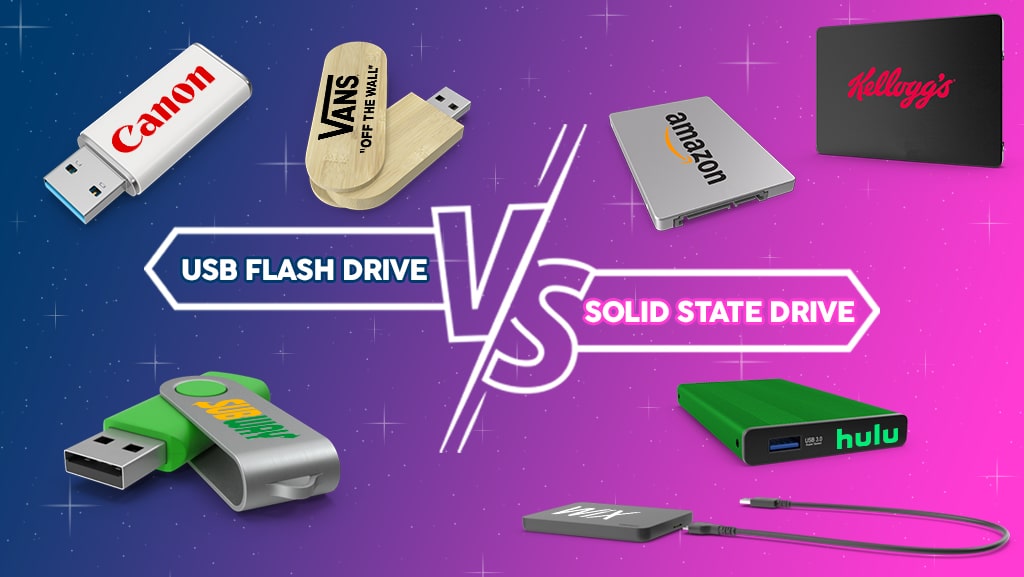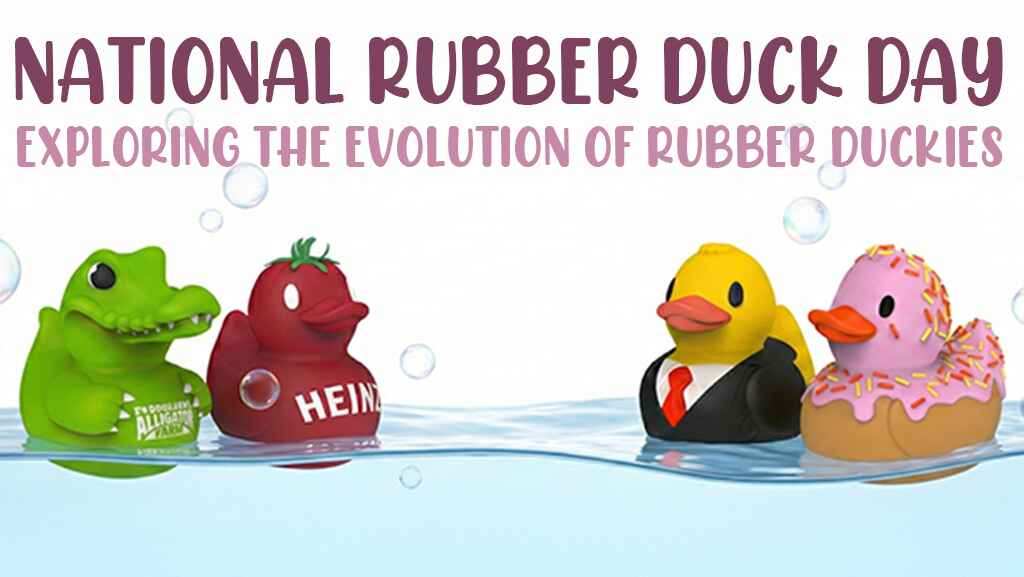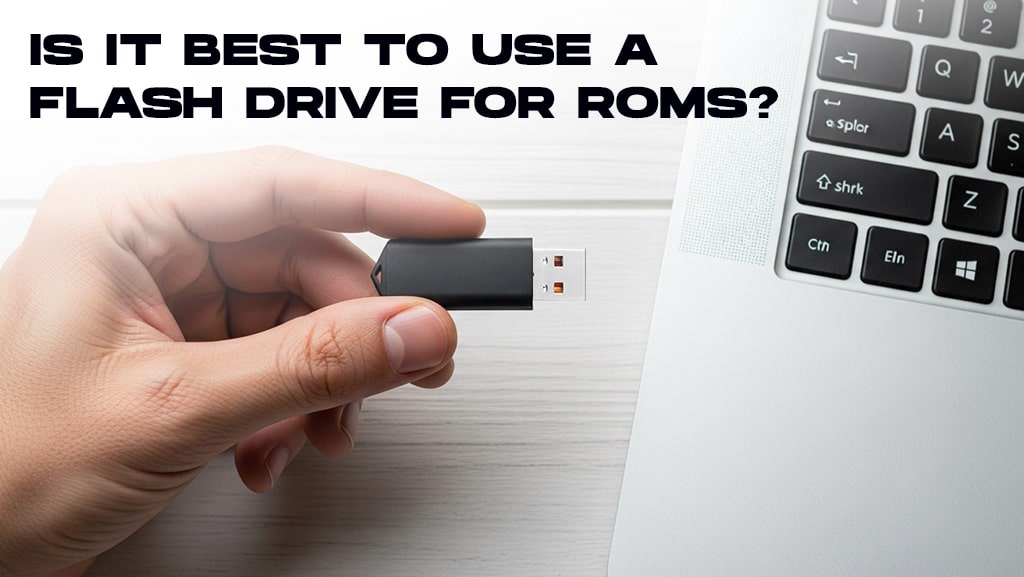
USB Flash Drive vs SSD: Which One Do I Need?
A Guide to Two Popular Data Storage Methods
In the digital age, the question of how to best store and manage data is a common dilemma. With an array of storage options available, choosing the right one can be confusing. USB Flash Drives and Solid-State Drives (SSDs) are two prominent choices, each with advantages and disadvantages. This article aims to unpack these details and guide you through making an informed decision that suits your specific storage needs.
Flash Drive vs SSD
What is a USB Flash Drive?
A USB Flash Drive is a compact, removable storage device that connects to a computer via a USB port. These devices are built around NAND-based flash memory, allowing quick read and write operations. Given their plug-and-play nature, they are especially handy for transferring files between different devices. Due to their small size and straightforward operation, USB Flash Drives are extremely popular for basic storage needs, ranging from text documents and photos to music and smaller video files.
What is an SSD?
A Solid-State Drive (SSD) is a type of storage device that also utilizes NAND-based flash memory, much like a USB Flash Drive. However, SSDs are generally more robust and capable of handling larger volumes of data at faster speeds. They can be used as internal storage devices in computers, replacing or complementing traditional Hard Disk Drives (HDDs). SSDs are available in multiple form factors, like 2.5-inch SATA drives or M.2 drives, allowing them to fit into various systems, from laptops to servers. They are particularly favored for tasks requiring high-speed data access, such as video editing or data analysis.
Comparing Key Features
Solid-State Drive vs Flash Drive Portability
-
USB Flash Drives: Highly portable and lightweight, flash drives are easy to carry in your pocket or on a keychain. They're often used as a quick method for transferring files between devices without a network connection.
-
SSDs: While SSDs are generally used as internal storage, there are external SSD options that are relatively portable. However, they are generally larger and heavier than USB Flash Drives, making them less ideal for travel.
SSD vs USB Flash Drive Speed
-
USB Flash Drives: The speeds of USB Flash Drives are generally sufficient for basic tasks such as file transfer and data backup. However, they usually can't compete with SSDs when it comes to reading or writing large volumes of data quickly.
-
SSDs: SSDs offer significantly higher speeds, which can be crucial for tasks that require fast data access. Newer SSDs equipped with NVMe technology can offer even faster data transfer rates, making them ideal for professional and intensive applications.
SSD vs USB Flash Drive Storage Capacity
-
USB Flash Drives: These devices offer limited storage capacity, typically ranging from 2GB up to 128GB or 256GB in some high-end models. They're best suited for storing small to medium-sized files.
-
SSDs: SSDs offer a much larger storage capacity, often ranging from 128GB up to several terabytes. This capacity makes them a more suitable option for users who require substantial storage space for large files or multiple applications.
SSD vs USB Flash Drive Price
-
USB Flash Drives: Generally, USB Flash Drives are less expensive than SSDs, making them a cost-effective option for users with simple storage needs or budget constraints.
-
SSDs: While SSDs are more expensive upfront, their greater speed and capacity often make them a cost-effective solution for users with demanding storage requirements.
USB vs SSD Durability
-
USB Flash Drives: These devices are relatively durable due to their lack of moving parts. However, they're often not designed for rigorous, long-term use and may wear out faster than SSDs.
-
SSDs: SSDs are built to last and endure more physical abuse. With no moving parts, they're resistant to impact and vibrations, making them more reliable for long-term storage.
Use-Case Scenarios
Use Cases for USB Flash Drives
-
File Transfer: Flash drives are often used for transferring files between computers. Their portability and plug-and-play nature make them a convenient choice for this task.
-
Backups: Flash drives can be a quick solution for backing up important files. While not ideal for large-scale or long-term storage, they are handy for short-term backups.
-
Presentations: Carrying your presentation on a flash drive allows you to present anywhere with a compatible system. Its small form factor makes it a non-intrusive addition to any presentation toolkit.
-
Save Games: For gamers, flash drives can be useful for transferring or backing up game save files. This enables you to continue your game on another system.
-
Music and Photos: Flash drives are commonly used to store and transfer multimedia files like music and photos. They offer a convenient way to keep these files accessible and easily shareable.
Use Cases for SSDs
-
Operating Systems: SSDs are the go-to choice for installing operating systems due to their fast read and write speeds, significantly improving system boot-up and responsiveness.
-
Data Analysis: When dealing with large datasets, the high read and write speeds of an SSD make data analysis tasks run more efficiently.
-
Content Creation: Tasks such as video editing, 3D modeling, and high-definition photography benefit from an SSD's speed, offering faster file transfers and smoother program operation.
-
Game Loading: Gamers will experience noticeably faster game loading times when their games are installed on an SSD, although at a higher cost per gigabyte of storage.
-
Large Video Files: If you're working with large video files, an SSD's high data transfer rate enables quicker read and write actions, making your workflow more efficient.
Selecting between a USB Flash Drive and an SSD is an important decision that hinges on various factors, including your specific storage needs, budget, and the nature of the tasks you'll be performing. USB Flash Drives offer a convenient and portable solution for basic storage needs, but they lack the speed and capacity of SSDs. On the other hand, SSDs offer robust performance and are an excellent choice for those needing fast, reliable, and ample storage.
Understanding your personal or professional needs is crucial in making an informed decision. At Logotech, we offer a wide selection of branded flash drives and solid-state drives! These customizable drives make an excellent addition to any workplace and are a great way to boost your brand visibility. Create an account on our website and order custom data storage solutions today!
Frequently Asked Questions
Q: Can I use both SSD and USB Flash Drive together?
A: Yes, many people use a USB Flash Drive for quick transfers and an SSD for long-term storage.
Q: Should I upgrade from a USB Flash Drive to an SSD?
A: If your tasks require high-speed data access or more storage capacity, upgrading to an SSD is a wise investment.
Q: Can SSDs be used externally?
A: There are external SSDs available that can be connected via USB, Thunderbolt, or other interfaces. They offer the performance advantages of an internal SSD but with more portability.
Q: How do temperature and humidity affect these storage devices?
A: SSDs and USB Flash Drives are fairly resilient to temperature and humidity within reasonable limits, but extreme conditions can adversely affect performance and longevity.
Q: Are there security features available for SSDs and USB Flash Drives?
A: Some higher-end SSDs and USB Flash Drives offer built-in encryption options for enhanced security.








